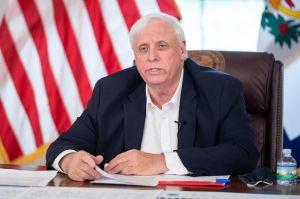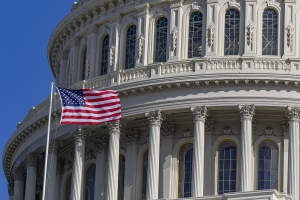Five Stages of Leadership – Hubris (Part 1)
And now, after the hand-wringing, the nail-biting, the promises and platitudes of the autumn election, we are in the winter of hubris.
This month, not only in Washington, but across America, right hands will be held high, left hands placed on the Bible, or the Quran, or the Bhagavad Gita, or the Constitution, or maybe even – in celebration of the new militant secularism – a volume by Christopher Hitchens or Richard Dawkins, or, in the tradition of John Quincy Adams – who wanted to emphasize the separation of church and state – a book containing U.S. laws. The newly elected (or re-elected), from precinct captain to President, will then make auspicious statements and grand speeches about the new world arising with their ascendancy to office.
Hubris is the embrace of the seducer's line first uttered in Eden as the adversary tempted Eve to chomp down on the forbidden fruit. "You shall be as gods," the serpent hissed. Eons later the ancient Greeks recognized the spiritual core of hubris, and, in their tragedies depicted the disasters crushing people inflicted with the presumption they could lift themselves to the level of the gods.
Lucifer was slithering on his belly in the first place because, as Isaiah 14 puts it, he tried to exalt himself above the heavenly host, and make himself equal – if not superior to –God. In that act of dizzying hubris evil was born, and collided with the world, smashing Paradise, and spreading chaos into the finely crafted cosmos.
The winter of hubris is the season when people everywhere should seek shelter from the blizzards of bromides whirring across the land. We must take hefty doses of vitamins to ward off the contagion riding on the hot breath of those inaugural speeches.
In fact, a British physician has even identified political hubris as a certifiable disease, "a medical disorder that can turn prime ministers and presidents into despots," according to The Guardian, a British newspaper.
Lord Owen, a doctor who many thought was a bit feverish himself when he led a UK political group in the 1980s, says the ailment is not limited to politicians. Anyone in power is susceptible to the hubris syndrome, he says.
Hitler, the poster boy for so many malevolencies, was a Typhoid Mary of hubris, afflicting everyone around him. None had it worse than SS General Reinhardt Heydrich. "You'll see the day," he said, "when Adolf Hitler will occupy precisely the same position in Germany that Jesus Christ has now."
In 1961, as John F. Kennedy dazzled the nation in Camelot's bright glow, his predecessor, Dwight D. Eisenhower, was worried about hubris. The old war horse had worked with grandiose military leaders like George Patton, as well as political sufferers of hubris. He knew the disease well, along with its infectious nature and disastrous outcomes, and warned against it in his farewell address to the nation.
"Kennedy's speech was an idealistic call to action. Eisenhower's speech was a calm warning against hubris," wrote David Brooks in The New York Times.
Speaking of disastrous outcomes, perhaps President Eisenhower in the scary early days of the Cold War remembered the hubris of Yalta in 1945, when American President Roosevelt, British Prime Minister Churchill, and Soviet dictator Stalin, heady with power, felt they could redefine the face of Europe, an act that stretched the deep chill of Marxist totalitarianism across the map.
In more recent times, hubris drove the George W. Bush Administration to believe it could nurture democracy to life in cultures whose worldviews are downright antidemocratic. It's one thing to hunt for WMDs, but only foreign policy strategists woozy with hubris would believe they could establish democratic regimes in nations held together by consortiums of warlords. Such "democracies" implode when the counter-force of troops, money, and promises is removed.
Hubris' calamities are not limited to politics and international affairs. Paul Ingrassia writes about the collapse of America's big three automakers in his book, Crash Course. A front jacket comment sums up the sad tale of how the big companies went "from glory to disaster: A fascinating look at how ego and hubris destroyed an industry."
Whether it's whole countries, homes, businesses, educational systems, or churches, the glory-wrapped moment of hubris leads ultimately to threadbare disaster. Pride still leads to a great fall. So head for the hills, hide the women and children; the winter of hubris is upon us.
The deep chill of humiliation will surely follow.





























